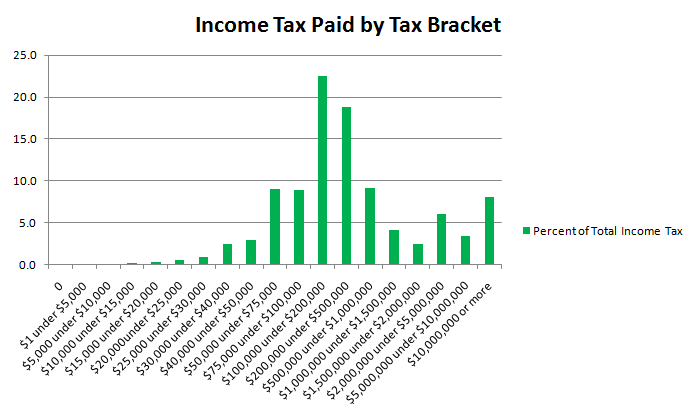Without a doubt, civilisation DOES benefit those living in it.
Now, there are sociological arguments that isolation and barbarism (for want of a better term) are not bad, but I for one enjoy the benefits of the modern world which would be impossible without our sprawling and interconnected cultures.
Many would suggest that the greatest benefits of civil society are enjoyed by the poor through welfare and charity.
These are certainly advantages bought about through our social contracts, and a great argument for our nature as nurturing and empathetic creatures.
I would argue that whatever the advantages enjoyed by the poor and disadvantaged in society, they are dwarfed by the advantages garnered by the wealth classes.
This shows who is getting the most out of society in a very real & direct way
Two thirds of the wealth is owned by the top 5%
Their tax burden is not 2/3rds of tax revenue.
Take a look at the world and examine the lives of its peoples.
Many argue that greater freedom results in increased wealth and less reliance on state.
Observation should inform people otherwise.
Freedom comes with costs.
Absolute freedom results in chaos, poverty, crime and war.
Every nation without a strong governing body is rife with conflict and poverty, regardless of natural wealth. Even areas within advanced nations without a welcome and positive police presence are more dangerous.
So, when society places restrictions on people (which it must) what we see is often greater personal freedom for the majority.
We can argue where limits should be placed and what constitutes an attack on personal liberty, but I do not believe that anyone supports absolute freedom, as such a position is self defeating.
Tax pays for the structure of society, and we are told that the rich are overburdened because they pay more than the poor. The poor make use of lots of government resources, so the burden to pay for these services should rest on those that use them.
To me, this is fallacious.
Who benefits the most from education?
The individual pupil?
I do not think you would find many that would agree.
No, society as a whole benefits from an educated population, and the wealth classes leverage this population for their endeavours. An educated worker is more useful than an uneducated one. This is irrefutable.
This is not exploitation on either side, when done well, but a partnership.
Without the expenditure by the government through tax, employers would not have skilled people to employ. An illiterate and innumerate population would produce far less value, to say nothing of advanced education.
This thinking extends to everything.
Who benefits from roads?
The individual motorist can get to work, absolutely, but the company he works for relies on the roads for ALL of their staff to arrive. The drivers themselves use the roads, but others indirectly benefit from that infrastructure.
If you look at wealth distribution, you see that the richest people in the world make their money in the markets of societies in which they complain about paying too much tax.
They believe their contributions to society are unfair, despite their wealth being ENTIRELY RELIANT on that society.
To me, this is a simple, self explanatory concept.
They are riding the horse, but refuse to pay for its feed, stable and grooming.
Just because they do not benefit directly from a state handout does not mean they are not utterly reliant on the system they rail against.
Largely that last sentence is untrue anyway, as the burden felt by business and the independently wealthy is often massively alleviated by tax breaks, refunds and subsidies.
The misleading idea that marginal tax rates are the rate of tax an individual or institution pays is responsible for much of the support for lowering taxes.
This shows the effective rates of tax on individuals
It can be applies generally with some caveats
Note how the corporate entities pay significantly less than individuals
As you can see, it is neither rich nor poor individuals that have "no skin in the game"
Compare these two images to the first image on this post.
Think about how you are told that the rich pay "too much"
We are left in a world where those drawing most benefit from the system complain if asked to pay a fair share back into it; believing the convenient self deception that their wealth is magically produced by their own ingenuity, and not a product of the Nation in which they reside.This is not to say that those contributing the most to society are unworthy of praise or should be vilified, I have nothing against people working for wealth (I have many things to say against cronyism and wealth, as in capital, having more value than work)
I just believe that they must begin to recognise that they are the most reliant on that society. They have the most to lose. Their contributions to society are essential, but they are not inherently noble or virtuous. They should pay most in because they do in fact get most out. If you earn two thirds of the wealth you should be paying two thirds of the tax bill, not complaining that the poor don't shoulder more of the burden.
You are engaged in a partnership with society, value for value.
Try not to escape the obligation you have to the society that enabled you to succeed.


No comments:
Post a Comment